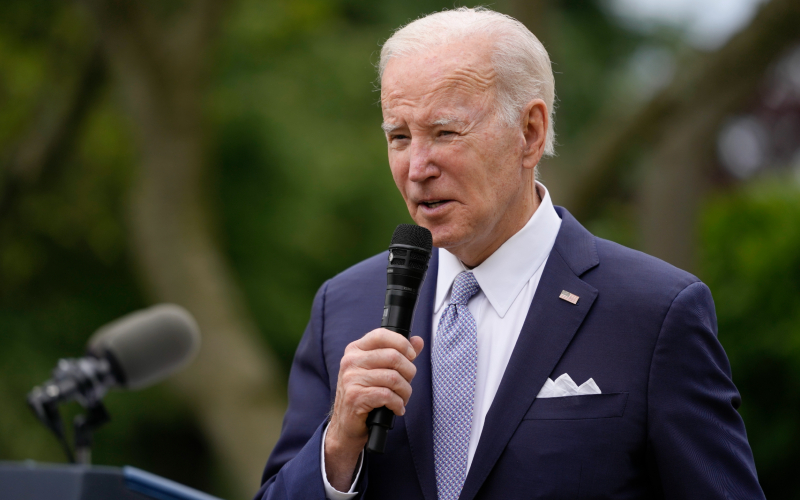Missouri Attorney General Andrew Bailey said Friday's Fifth Circuit ruling in Missouri v. Biden is a "monumental" First Amendment victory even though it overturned parts of a lower court decision on July 4.
A three-judge panel appointed by Republican presidents said the preliminary injunction of Judge Terry Doughty, of Louisiana's Western District, was too broad but left in place parts that barred certain administration officials from "threatening, pressuring or coercing social media companies in any manner to delete, suppress or reduce posted content containing protected free speech."
 The government had earlier argued that its actions were aimed at persuasion and were not illicit efforts to coerce.
The government had earlier argued that its actions were aimed at persuasion and were not illicit efforts to coerce.
But the plaintiffs said – and now two courts have agreed – that the government called on and threatened social media companies to remove posts that not only included possible misinformation about COVID-19 but also topics that include elections, climate, transgender and abortion.
Bailey said on American Family Radio Monday that the government has no right to suppress speech but should seek to reach its goals by better communicating its own points of view.
"What they can't do is censor," Bailey told show host Jenna Ellis. "What the mainstream media is missing here is they keep saying, 'Oh, the government has to be able to coordinate with Big Tech and be able to flag misinformation.' Well, no it doesn't. The government retains its own right to speech."
The Missouri AG argued what the government was doing went far beyond friendly conversations with Big Tech officials.
"This isn't just the government talking to Big Tech – this is the government threatening Big Tech. There was always an unspoken 'or else' – like 'If you don't take down that content, we will harm you.' That's what the government told Big Tech, and Big Tech acquiesced to the demands of censorship."
Timing of the ruling is important
The Fifth Circuit's ruling is especially important as both sides position themselves to win the White House and important seats in Congress a little more than a year from now.

"We're moving into an election cycle," Bailey noted. "We already know that they targeted speech related to COVID, and then it morphed into speech related to election interference. What's it going to be next? They're censoring anyone who disagrees with the government, and it explicitly targets conservative speech. It's viewpoint discrimination.
Doughty had already ruled that the administration colluded with social media companies like Facebook, Twitter and YouTube to limit speech by deleting posts that opposed White House policies or simply had the gall to oppose Biden politically.
The administration began its suppression strategy by playing upon COVID-19 fears saying it was targeting social media "misinformation" about the virus and its vaccines.
But Bailey, who maintained confidence that courts would rule in his favor, said the evidence of more than 20,000 documents and numerous deposed witnesses quickly showed much more.
"We all saw it happening, right? We all saw the deplatforming, the shadow banning – but what we didn't know is that it was going on at the behest of federal officials … and that's what this lawsuit has uncovered," Bailey said.
Celebrating the ruling where the gov't had applied the pressure
Bailey posted the ruling to X, formerly Twitter, immediately. "The First Amendment remains intact," he said, noting that the ruling was "another brick" following the first brick in the lower-court ruling in Louisiana on July 4.
Several lawmakers leapt into action as the Fifth Circuit's news spread. Sen. Rand Paul (R-Kentucky) wrote on X: "Americans don't take infringement of their liberty lightly. Under my Free Speech Protection Act the government will no longer be able to cloak itself in secrecy to undermine the First Amendment."
Rep. Jim Jordan (R-Ohio) introduced the legislation in March along with Senator Paul. It includes fines of up to $10,000 per instance of free speech violations.
Sen. Bill Hargerty (R-Tennessee) wrote on behalf of his Disclose Government Censorship Act, legislation first filed in 2021 and reintroduced this May. He called the ruling a "great victory for free speech" and said: "My Disclose Government Censorship Act would permanently expose this unlawful collusion between Big Government and Big Tech."
The bill would require executive and legislative branch officers and employees to disclose their communications with Big Tech social media companies regarding anything that might restrict access to material posted by another party. Disclosure must be made within seven days of communication, and failure to disclose brings unspecified penalties.
Bailey said the government's plot to limit speech grew so fast and so large that it had come up with new ways to manage it, and social media platforms had to update their terms of service agreements with users.
"We know that the vast censorship enterprise grew so quickly under the bite of the administration that the federal government had to correct a new bureaucratic structure to manage it because they had so many censorship demands," Bailey said.
"It's important to note that Big Tech changed its terms of service at the demand of the White House. They changed their algorithms to satisfy federal officials' demands. There's no limiting principle to how far this will go."
While the Fifth Circuit's ruling gives Missouri v. Biden momentum, Bailey warned the fight is far from over – because election season is just around the corner.
"We've got to continue to build that wall between tech and state to protect the integrity of our election process in the free, fair and open debate about the candidates and the issues," he urged.







